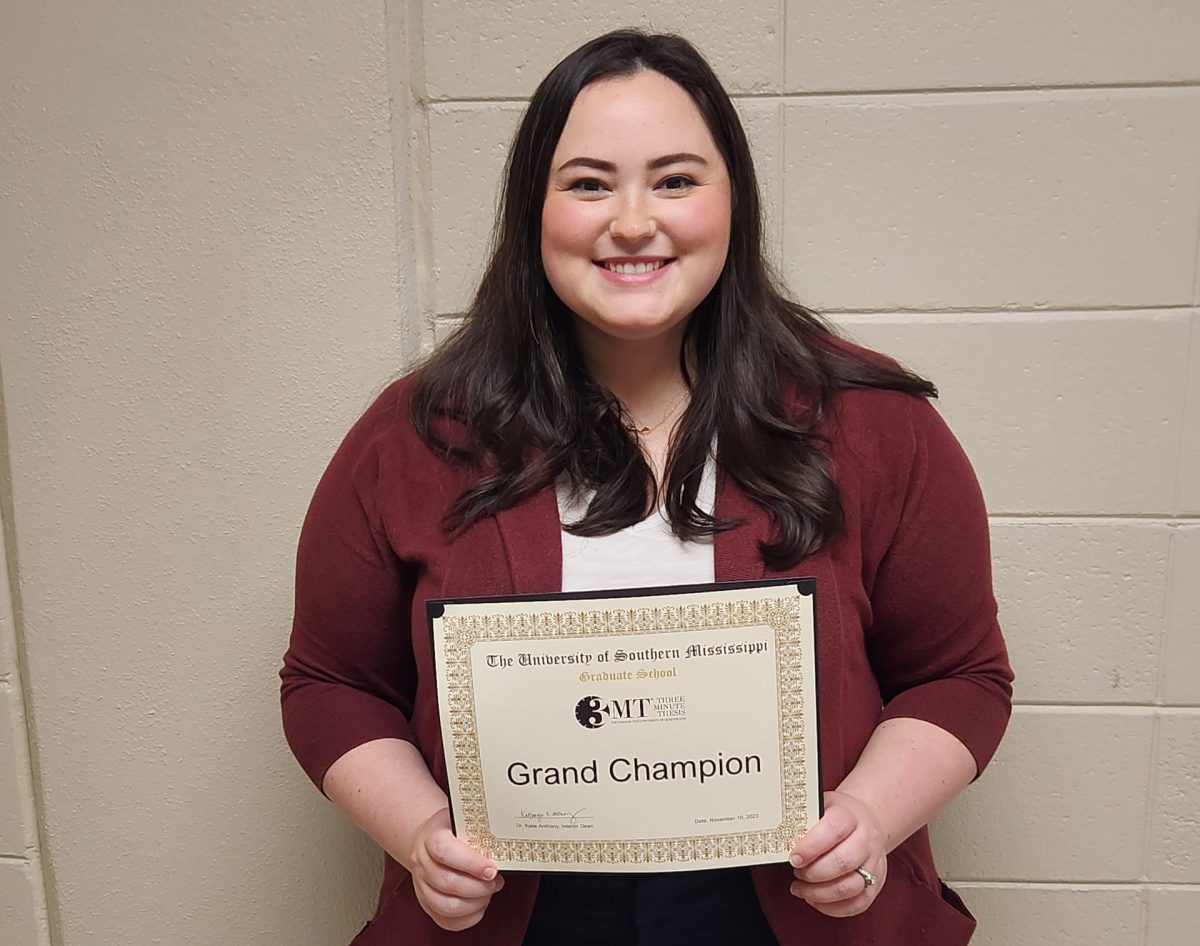Southern Miss hosted its annual three-minute thesis competition at the Joe Paul Theatre on November 9 and 10, Jan. 2023. The grand champion of the competition was Meagan Stanley, a Ph.D. student in the chemistry department. The runner-up of the competition was Lindsey Ostermiller and the People’s Choice award went to Nick Enos.
For winning the competition, Stanley was awarded a certificate announcing her victory, $250 for winning the preliminary round, and $1,000 for winning the grand championship.
Stanley presented her thesis titled ‘Using Inclusion Chemistry to Develop Molecular Probes for Metal Ion Detection.’ The metal that she was interested in for her thesis was Zinc. Since her topic seemed complicated to people who did not know a lot of chemistry, Stanley had to be creative about how she introduced her topic. The competition required the presentation to be understood by a general audience and using jargon counted against the presenter. Understanding how some people find chemistry intimidating, Stanley introduced her project by talking about Febreeze.
“If you know what Febreeze is, it is based on the same phenomenon of including two molecules with each other.” Stanley said. “If you understand what Febreeze is, you can understand my project.”
Stanley explains that while she felt ecstatic to win, the most important part of the competition for her was getting to know what other graduate students were doing and what else was happening at the university. She also mentioned that undergraduate students who may not know a lot about what goes on in research labs can attend the presentations to find something they might be interested in.
“It’s a great way to see very quickly and very easily, in a way that’s easy to understand, a very broad range of research that is being done at USM,” Stanley explained. “Sure, I know what is going on in my department and I may know what’s going on in the school of MANS, and maybe a few other areas related to mine, but I don’t really know what’s happening in other departments.”
Stanley also explains that the three-minute thesis goes further than just reassuring her that she is a good researcher. To her, it proved that she could be a good teacher. Explaining a research topic in general terms is already a challenge, and it was made even more challenging by the time constraints of the competition and the idea that most people have of chemistry being extremely difficult to understand. Being named the grand champion after her presentation proved to Stanley that she could be a good mentor, which she says is her lifelong dream.
Stanley also hopes to help people see chemistry without the intimidating light it is often portrayed in. She believes that a good foundation is required to enjoy chemistry and hopes that she can someday be able to guide undergraduates into research. She also encourages more graduate students to apply to the three-minute thesis. The three-minute thesis is open to any graduate student in all the faculties.

























